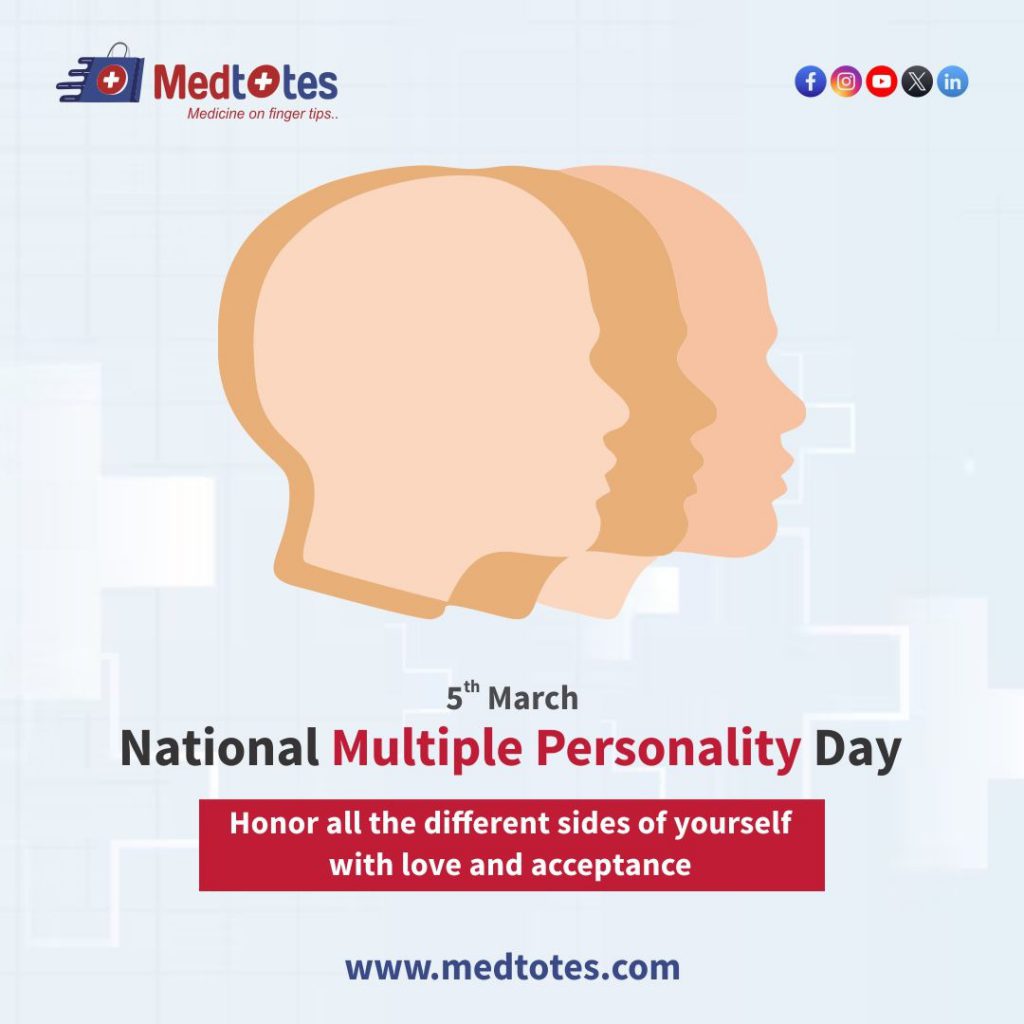I. INTRODUCTION
National Multiple Personality Day is a day to raise awareness about dissociative identity disorder (DID), a psychological condition characterized by two or more distinct identities or personality states. It encourages education about the challenges faced by individuals with DID and promotes support and understanding. By increasing awareness, the stigma surrounding DID can be reduced, and empathy and acceptance can be fostered. By shedding light on the realities of living with multiple identities, we can create a more inclusive and supportive environment for those affected by this complex condition. Therefore, raising awareness is crucial for providing proper support and resources.

II. UNDERSTANDING
Dissociative identity disorder (DID) is a mental health condition involving two or more distinct personality states within an individual, often resulting in unique traits, memories, and behaviors. Symptoms include memory gaps, disorientation, identity confusion, and the presence of voices or conversations in the individual’s head. DID affects 1-3% of the general population, and common misconceptions include it being rare or a form of attention-seeking behavior. It is crucial to educate oneself about DID and approach those with the disorder with empathy. Women are more likely to be diagnosed than men, and proper diagnosis and treatment are necessary.
III. CAUSES AND TRIGGERS
- Childhood trauma and abuse are the primary triggers for developing DID.
- Other factors, such as genetics, environment, and neurobiology, may also play a role in the development of the disorder.
- Stressful life events and ongoing trauma can exacerbate the symptoms of DID.
- Lack of supportive relationships and coping mechanisms can contribute to the manifestation of dissociative identities.
IV. TREATMENT OPTIONS
- Psychotherapy, including dialectical behavior therapy and cognitive-behavioral therapy
- Medications to manage symptoms such as anxiety and depression
- Support groups and peer counseling for individuals with DID
- Family therapy to address underlying issues and improve communication
- hospitalization in severe cases to ensure safety and stabilization of symptoms.
V. CONCLUSION
In conclusion, individuals with Dissociative Identity Disorder (DID) should seek professional help to manage symptoms and improve their quality of life. This can be achieved through psychotherapy, medication, support groups, and family therapy. In severe cases, hospitalization may be necessary for stabilization. Proper treatment and support can help individuals work towards integration and healing.
Download our app: https://bit.ly/3tkQkFy
